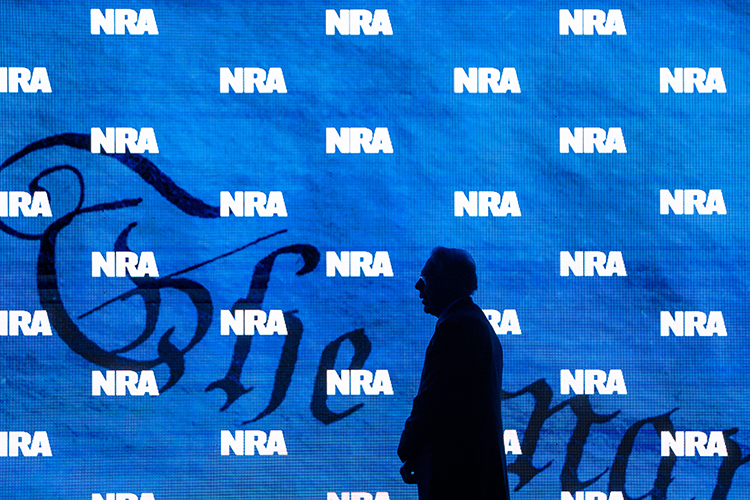Supreme Court to consider whether NRA can sue official for 'pressure tactics' against banks, insurers

The National Rifle Association, whose CEO, Wayne LaPierre, appears here onstage during the 2023 National Rifle Association annual convention, had its appeal of a 2nd Circuit decision accepted by the U.S. Supreme Court. (Photo by Demetrius Freeman/The Washington Post via Getty Images)
The U.S. Supreme Court has agreed to decide whether the National Rifle Association can sue a New York official for allegedly violating the First Amendment by pressuring banks and insurers to cut ties with the advocacy group.
The court agreed on Friday to hear National Rifle Association v. Vullo, report Law.com, the New York Times, SCOTUSblog, Reuters and the Volokh Conspiracy.
Maria R. Vullo, then the superintendent of the New York Department of Financial Services, had said banks and insurers should consider the “reputational risks” of working with the NRA after a shooter killed 17 people in February 2018 at a high school in Parkland, Florida. Vullo is a lawyer who formerly worked at Paul, Weiss, Rifkind, Wharton & Garrison, according to Law.com.
The New York-based 2nd U.S. Circuit Court of Appeals had said Vullo didn’t cross the constitutional line, citing key documents that “were written in an evenhanded, nonthreatening tone and employed words intended to persuade rather than intimidate.” In any event, the 2nd Circuit said, Vullo had qualified immunity that protected her from the lawsuit.
In its cert petition, however, the NRA alleged Vullo had used “pressure tactics—including backchannel threats, ominous guidance letters, and selective enforcement of regulatory infractions” to induce banks and insurance companies to avoid doing business with the NRA.
The court agreed to decide whether the First Amendment allows “a government regulator to threaten regulated entities with adverse regulatory actions if they do business with a controversial speaker” due to the government’s hostility to the speaker’s viewpoint or a perceived backlash against the speaker’s advocacy.
The case “has echoes” of another pending Supreme Court case alleging the U.S. government pressured social media companies to curb COVID-19 information and other content, Law.com reports. In that case, the Supreme Court will decide whether the pressure transformed content decisions by the companies into state action, violating the First Amendment rights of social media users.
Updated Dec. 11 at 7:02 p.m. to correct a Getty Images photo caption that misidentified Wayne LaPierre, the CEO of the National Rifle Association.



